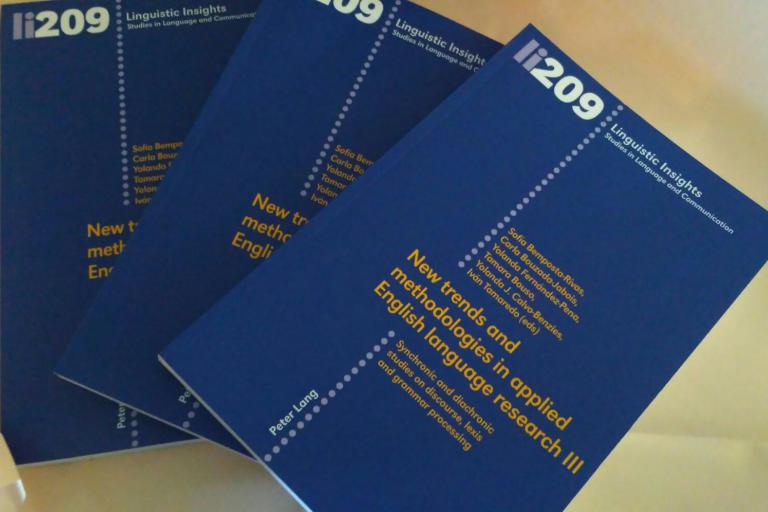On 3 April 2014 Dr Philip Durkin gave a seminar entitled Etymology and the OED: linguistic approaches to lexicographical problems at the Faculty of Philology and Translation. Dr Durkin is Deputy Chief Editor and Principal Etymologist of the Oxford English Dictionary. In addition to his expertise in etymology, Dr Durkin’s research covers other areas in the history of the English language such as historical lexicography, approaches to lexicography, loanwords in English, language contact and medieval multilingualism. He has published extensively on these topics in relation to the OED, including two monographs: The Oxford Guide to Etymology (2009) and Borrowed Words. A History of Loanwords in English (2014), both published by Oxford University Press. Dr Durkin is currently preparing the edited volume The Oxford Handbook of Lexicography.
Dr Durkin’s seminar offered a fascinating overview of a rich variety of linguistic approaches to lexicographical ‘problems’, focusing on etymology and based on data from the OED. After a brief historical contextualisation of the dictionary, Dr Durkin explained methodological matters such as nonce words, institutionalized words, and words with ‘gaps’ in their historical record. The seminar continued with an engaging discussion of lexicographical ‘problems’ and how etymology can help solve them, including: (i) words showing considerable variation in form and meaning over time, e.g. poke in a pig in a poke; (ii) transparent words and analyzable words, e.g. snap tin, blackbird, husband; (iii) lexical splits, e.g. ordinance/ordnance; (iv) lexical mergers, e.g. melt, mean, queer; and (v) folk etymology, e.g. rake in as think as a rake. Dr Durkin also addressed difficulties related to semantics, e.g. potty; to the multiplicity of early spelling forms, e.g. polecat; and to apparent but no obvious borrowing, e.g. purse. Amongst other linguistic changes, Dr Durkin raised examples of lexical broadening, narrowing, metaphor, metonymy and loanwords from Scandinavian and French. These and many other topics are fully discussed with great thoroughness in his monograph The Oxford Guide to Etymology (2009).






